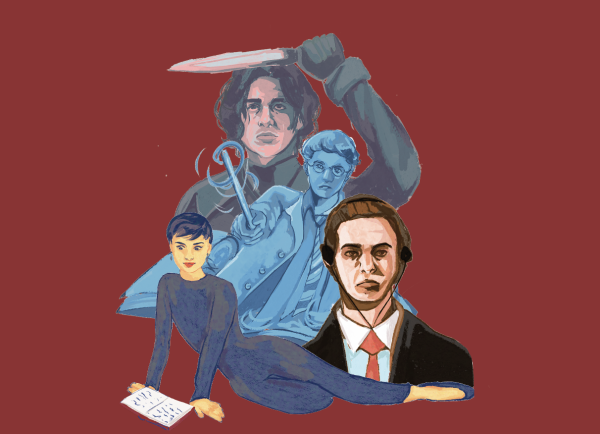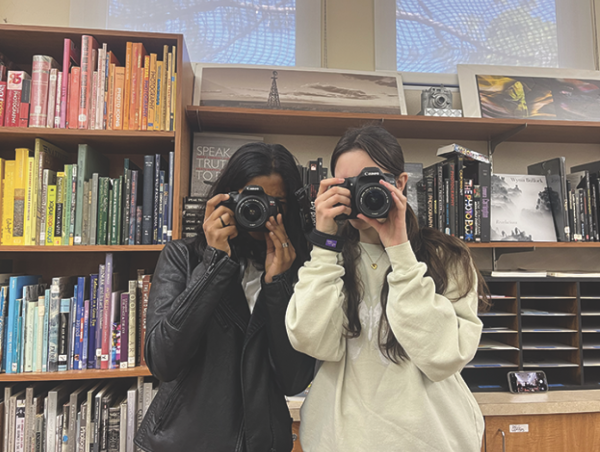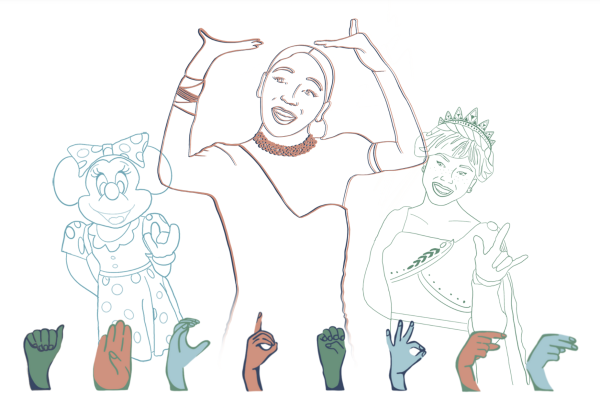Radio
3 MIN READAudio is a brilliant, underrated medium. People might assume radio’s dead, but it’s actually the only section of journalism that isn’t struggling right now! It’s just shifting over to the internet, no changes to the ad-based business model needed. And podcasts are on the rise, with audience numbers growing every day. Audio is beautiful and direct — there’s incredible power in hearing people tell their stories. Longform radio, our favorite kind, is meticulously constructed — people who are good at radio are really good at radio. Radio producers immerse themselves in the stories they’re reporting and often make meaningful connections with interviewees, getting them to open up about emotional experiences they wouldn’t share with anyone else. Radio adds a new dimension to content by requiring listeners to actively engage with the story and imagine their own visuals.
Criminal
“Criminal,” hosted by the charismatic Phoebe Judge, is engaging, intriguing, and allows listeners to dive into the details of unusual crimes that are not usually talked about in the news. She does episodes on everything from the poisoning of a famous tree in Texas to investigating murder by diving into a pool of tar. “Criminal” combines informative stories with investigative journalism, and the listener is brought along for the journey of finding out what really happens. Judge calls, interviews, researches, and meets with people involved in the stories so listeners get a firsthand look into these peculiar crimes that can be confusing without context and detail. “Criminal” is remarkable, high-quality journalism that’s unexpectedly fascinating.
Serial
“Serial” has blossomed into a well-known investigative journalism project that has altered the course of Adnan Syed’s life and captured millions of listeners. Host Sarah Koenig has investigated two criminal cases that involve war, government, and the justice system. In the first season, Koenig tries to unravel the complicated tale of the murder of Hae Min Lee, Adnan Syed’s girlfriend, who he allegedly killed. “Serial” is controversial and gripping, and listeners quickly become invested in the story — and it’s even affected the case. Syed was originally given a life sentence, but Koenig’s work brought attention to the lack of evidence and his case is now being reconsidered. The second season tells the story of former soldier Bowe Bergdahl, who was captured by the Taliban and held prisoner for five years after wandering off his post. This case is exciting and relevant because Bergdahl is currently being investigated for deserting, and the true story of what happened and why Bergdahl left is examined in this podcast. Both stories are incredibly well told and and researched. “Serial” is incredible investigative journalism that has altered the courses of lives and brought questions about racism and the justice system into the minds of millions.
This American Life
“This American Life” has revolutionized modern radio and brought millions upon millions to click the download button every week. It’s difficult to sum up the show because, for one, its subject matter varies hugely, and secondly, it’s unlike anything most people have ever come across. Each episode is based on a theme and is split up into two or three acts. These acts can be classic radio stories, interviews, accounts of events, or even creative writing. There have been shows on refugee camps in Greece, how people cope after brushes with death, the cliche of heartbreak, pig anuses being passed off as calamari, and fiascos of all kinds.“This American Life” was groundbreaking in the radio world when it first aired — it was the first of its kind, and it spawned an entire genre of powerful long-form radio and podcasts.
StartUp
“StartUp” provides a visceral look into what starting a company is like. Alex Blumberg, an award winning journalist who helped produce “This American Life” and co-founded “Planet Money,” decided to start a digital media company to produce high-quality narrative podcasts. As he went through the entire process, he recorded everything — his pitches to potential investors, his fraught conversations with his wife, his discussions with his business partner and friends — and edited it together into a podcast. It’s fascinating to listen because it tells an honest story about an upcoming company, one that often does not include all the hardship and rejection. You can hear him struggling with conflicts at home and at work, the emotional wringing that comes with pouring all of your time and energy into something that is overwhelmingly likely to fail, and the joy of long-awaited victories. It’s an incredibly truthful look into what the countless startups in Silicon Valley go through every day.






